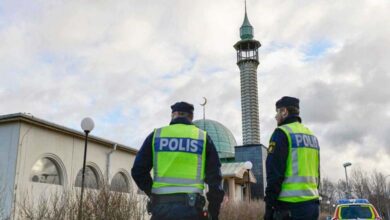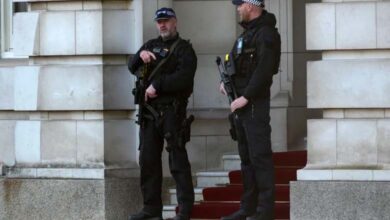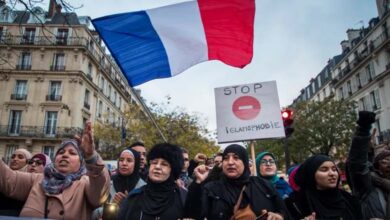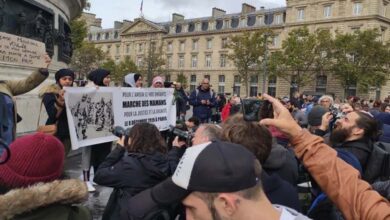The Muslim Brotherhood in Germany: Infiltration Attempts Collapse under Intelligence Surveillance
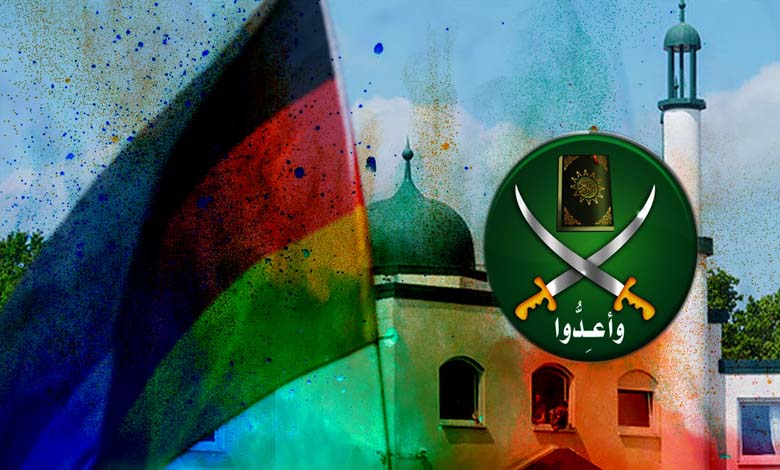
Exposed tactics, premonitored schemes, a double discourse unveiled by both Arab and international contexts, and structural shifts looming on the horizon.
-
One of the key religious leaders of the Muslim Brotherhood in Germany and Europe… What do you know about Taha Sulaiman Amer?
-
One of the prominent intellectual references for the Muslim Brotherhood in Germany and Europe… What do you know about the Tunisian Hadi Brik?
These are the key findings of a recent report released by the Office for the Protection of the Constitution—Germany’s domestic intelligence service—in North Rhine-Westphalia, the country’s most populous state, regarding the activities of the Muslim Brotherhood both locally and globally over the past 12 months.
The German Muslim Community Organization is the Brotherhood’s main arm in Germany, surrounded by several affiliated sub-organizations.
It also notes the presence of other institutions and associations adopting the group’s ideology, even without direct or official structural ties, with only very weak connections.
-
A press report reveals details of a bill to blockade the Brotherhood in Germany
-
Germany… Is the End of the Muslim Brotherhood Near?
Influence under Surveillance
The report highlights the Brotherhood’s influence in places such as the Al-Rahman Mosque in Münster, North Rhine-Westphalia, managed by the city’s Islamic Cultural Center.
It adds that “the Muslim Brotherhood seeks to establish a system of governance based on Islamic Sharia, and at best accepts the secular democratic constitutional system as a transitional means toward an Islamic regime.”
The report affirms that the Brotherhood employs a “bottom-up Islamization” strategy, starting with recruiting individuals and training them to become influential in society, with the aim of spreading the group’s ideology or at least creating free spaces for their movement to expand.
-
Report Warns: Muslim Brotherhood Maneuvers in Germany to Infiltrate Society and Expand Its Activities
-
ISIS and the Muslim Brotherhood under surveillance: Political Islam worries Germany
In this context, the report stresses that the Brotherhood’s ideas are clearly incompatible with Germany’s free democratic constitutional order, classifying it as extremism and subjecting it to security oversight by the Office for the Protection of the Constitution.
Double Standards in Positioning
On the international front, the report notes the Brotherhood’s stance on the Middle East conflict, where its global structures reaffirmed support for Hamas, while its branches in Germany acted cautiously, avoiding public statements to avert internal backlash that might jeopardize their legal standing.
Domestically, the report highlights firm governmental actions, including the ban of the Islamic Center in Fürstenwalde, Brandenburg, due to its known ties to the Brotherhood and Hamas, and the halting of a mosque construction project in Dresden after discovering connections between its imam and the Brotherhood.
-
Bill Before Parliament… Will Germany Ban the Muslim Brotherhood?
-
The New Arm of the Muslim Brotherhood Performs the “Victim Dance” in Germany… Citizenship Revocation?
Mounting Internal Turmoil
The report concludes by addressing the internal unrest shaking the Brotherhood’s international organization, attributed to divisions within the group’s Egyptian branch.
According to the report, these challenges could lead to substantial structural changes in the organization in the near future.
This report comes amid the German government’s tough stance on political Islam, with the new ruling coalition, led by the Christian Union and Social Democrats, vowing to continue combatting the Brotherhood and drying up its sources of funding.


